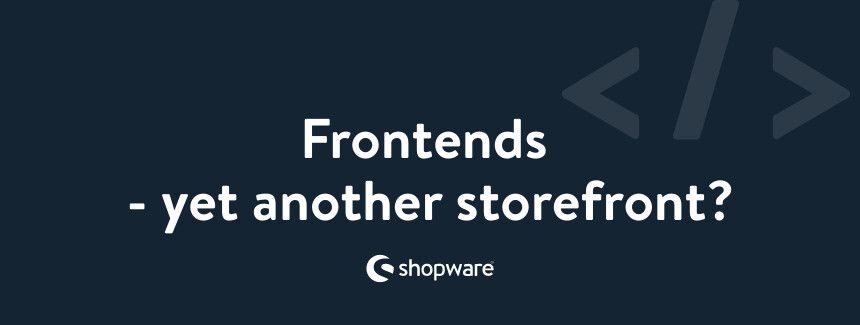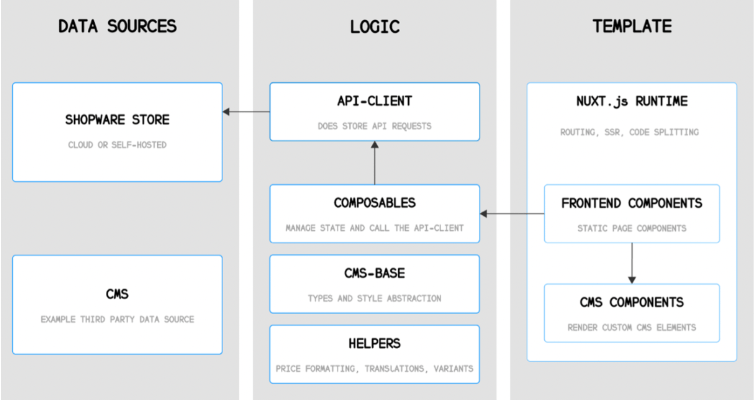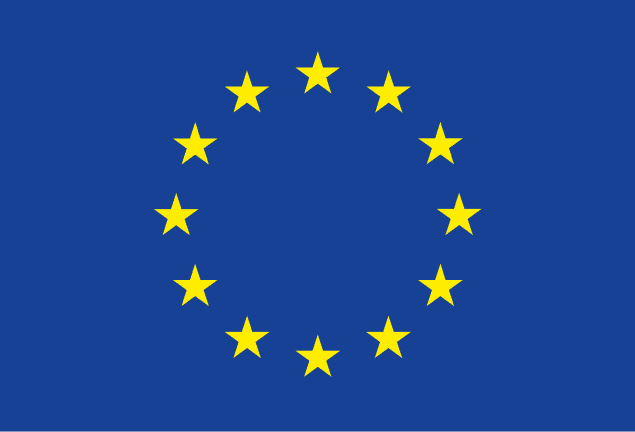Shopware Frontends is a recently developed solution which focuses not only on the impressions of sellers and users. It also meets the needs of developers, creating a better experience for them, while providing more freedom. Due to the above, the entire process of e-commerce creation becomes more flexible and friendly to the recipients.
Read on to find out:
⦁ What Shopware Frontends is;
⦁ When you can expect it;
⦁ The advantages of this solution;
⦁ What the Developer Experience involves;
⦁ How non-standard e-commerce is characterized;
⦁ How Shopware and frontend are connected.
What is Shopware Frontends, and when can you expect it?
Recently, Shopware announced its works on introducing a new solution called Frontends. It is designed for frontend development. Its creators highlight that this solution involves a framework or a casual set of tools that is to make the process more flexible.
It is worth noting that the solution mentioned here is in the process of introduction, so its name and particular features may soon change.
The key assumption of Shopware Frontends is to accelerate the process of prototyping and developing such e-commerce platforms that are considered to be non-standard ones. Developers are not limited in their creativity through ready solutions, so they can enjoy more freedom in their work.
Frontend is significant in the e-commerce industry. Its appearance and usability contribute to user experience, whose quality impacts the entire sales process. You have only a few seconds to make the first impression, while drawing the attention of potential customers is a huge challenge, specifically when you want to keep their commitment later on.
Even though the work of developers takes place behind the scenes, its results are visible to all users of a given e-commerce solution, so adjusting the environment to the needs of developers should be treated as one of the priorities.

Early access and upcoming changes
Shopware Frontends is currently available in beta version to all interested users. This means it is not a fully ready product.
Soon, the framework users can expect various changes that consider the following aspects:
⦁ Submitted errors
⦁ Problem solutions
⦁ Recipient preferences
We could say that Frontends is still undergoing a metamorphosis that aims to improve the experiences of developers, sellers, and customers in many aspects.
Flexibility and multiple benefits
A flexible solution designed primarily for developers may seem like something complicated. This isn’t the case at all! It is a convenient feature that is designed not only to streamline development work, but also to improve the quality of the entire e-commerce process.
Change starts at the source, which is where all the creative ideas are transformed into ready-to-use pieces of code. Their proper implementation, but also being able to rely more on their own invention, is an interesting convenience for developers.
When deciding on Frontends, it is worth exploring the numerous advantages of this innovative solution that is still evolving:
Low entry threshold
In the case of Frontends, the entry threshold is low enough that no detailed prior knowledge of Shopware is required. This means that you can start programming in it, skipping the whole process of familiarising yourself with the creation procedure, as you did before with Twig.
Flexibility
At Frontends, great importance is placed on scalability and flexibility. It is more important whether a solution is sufficiently agile than the availability of extensive features or the possibility of complete configuration (although the developers have also taken adequate care of these aspects).
Innovative technology
The framework discussed uses a modern technology stack based on TypeScript and Nuxt3. The former is a programming language developed by Microsoft under an open-source licence, while the latter is a universal tool for both user-side and server-side rendering.

Every UI
In Frontends, there is no imposed UI, so you can choose any variant in this case. Such an option definitely adds to the creative possibilities of developers, who are not forced to adapt to non-flexible solutions.
As you can see, Frameworks manifests many strengths that are still being refined at various levels. The undoubted benefit of choosing this solution is that it is evolvable and adaptable to individual user preferences.
Shopware Frtontends and developer experience
First, solve the problem. Then, write the code.
John Johnson
Developer Experience is a concept no less important than User Experience, but one that is much less popular.
The type of experience in question, as proposed by Krzysztof Wróbel, Director of Engineering at Codilime, can be based on three pillars:
- Usability
- Ease of search
- Reliability
It is easy to notice that if it were not for developers, all e-commerce could simply cease to function. Their actions are the supports for the success of individual sales platforms, and consequently their loyal consumers.
Developers' actions affect the results of their work and therefore, in the case of the e-commerce industry, the entire sales process. Their comfort and satisfaction can contribute to the creation of significantly more efficient solutions that are more attractive in terms of frontend development.
The purpose of Developer Experience is to optimise the developer's work so that it is not just a tedious task, but also an interesting experience full of new opportunities.
Being available to different types of experience, especially in the e-commerce industry, is an approach linked to the idea of UX, which brings many different benefits, such as positive user experiences that can translate directly into financial gains for sellers.
Non-standard e-commerce
When it comes to non-standard solutions in the e-commerce industry, Frontends seems to be a straightforwardly ideal tool, as the creators assure us:
Frontends is a collection of multiple packages that you can use to implement your custom storefront project.
An example of a non-standard feature is the ability to integrate Shopware Frontends into an existing frontend application easily, provided it has been developed using Vue.js.
In addition, developers do not have to adapt to ready solutions when coding an e-commerce platform. With flexible choices, they can create something using not only strict guidelines but also their own creative thinking.
Forcing developers to work with an imposed technology or specific rules of action not only contributes to limiting their creative potential but also takes away a sense of fulfillment and professional satisfaction, which can result in outdated code or a lack of courage to make important design-related decisions, among other things.
Fortunately, Frontends is moving away from this thinking, giving coders more freedom in action.

So, what can non-standard e-commerce look like? It is a platform that will aesthetically stand out from the competition without losing qualities such as:
- usability
- intuitiveness
- transparency
What we have in mind here is a website that is simultaneously based on a familiar framework so that users know how to utilise particular elements, but also features a unique visual layer created by a modern tool such as Frontends.
Bridging the gap between Shopware and frontend development
When asked what connects Shopware with frontend development, there can only be one answer: API.
Although Frontends still relies on an internal API as with the previous version, the functionality has been documented and subsequently improved in numerous ways.
In the case of Frontends, the API should be considered more stable and native. As you can read on the product page:
The API is the only connection between the frontend and Shopware. For that reason, we have spent a lot of time on refining and documenting the internal API (…). Use them to build checkouts, listings, product pages, searches, and account areas without any knowledge about Shopware’s API endpoints, authentication, or parameter naming.
As the quote indicates, APIs are significant when it comes to the creation of the visual layer of e-commerce platforms, so any improvements in this area will certainly benefit the experience of all involved.
Summary
Although the e-commerce industry may at first glance be associated solely with the consumer experience, the impressions of developers preparing and implementing sales platforms are equally relevant.
The freedom of developers to act creates a path to more customized and innovative solutions, which is possible through the Frontends framework offered by Shopware.
Using Frontends will not only contribute to a better Developer Experience. It will also ensure greater flexibility and unparalleled e-commerce that will attract satisfied users and allow them to explore entirely new possibilities.
Want to test Shopware Frontends in practice? Or perhaps you still have doubts about its effectiveness? Then contact us to work out a beneficial plan for you and your business!







